Woodrow Wilson was born on 28th December 1856 in Staunton, Virginia, and died on 3rd February 1924 in Washington DC. He was the 28th president of the United States.
There are numerous accomplishments of Woodrow Wilson, out of which most of them were achieved during his time as the U.S President. He was the U.S president from 1913 to 1921. Besides, he was also a statesman and an American Scholar.
He, like John Adams, was interested in-laws and studied law while in college. His legislative thoughts and high-minded idealism also include some of his significant accomplishments.
John Adams was born to his father, Joseph Ruggles Wilson, and his mother, Janet Woodrow. He married Ellen Axson Wilson ( 1855 – 1914 ) and Edith Wilson ( 1915 – 1924 ) and three children Eleanor Wilson McAdoo, Margaret Woodrow Wilson, and Jessie Woodrow Wilson Sayre.
Here is the list of the top 10 accomplishments of Woodrow Wilson with details.
10.Woodrow Wilson was the 28th president of the United States
Content
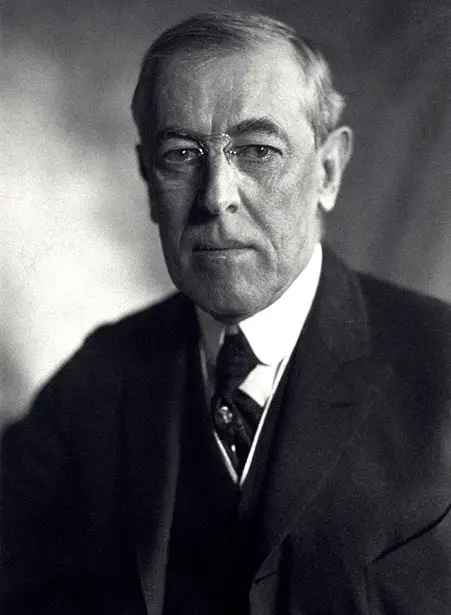
Source: Wikimedia Common
Woodrow Wilson was the president of Princeton University and the Governor of New Jersey before becoming the president of the U.S. After working as a president of the university and as the governor, he gained experience and fame.
He fought for the presidency position in 1912, to which he won with a significant gap of votes. Thus, he became the 28th president of the United States and began his presidential journey from 5th March 1913, which went until 4th March 1921.
During his presidential journey, the economic policies were changed for good, women’s right to vote was implemented, and world peace flourished with the league of Nations.
His selection as the president of the U.S primarily due to his impression on mass while he was the governor, and the democratic party nominated him.
His presidency period was longer compared to other presidents as he was re-elected as the president in 1916. Warren G. Harding succeeded Wilson.
9.He was the governor of New Jersey
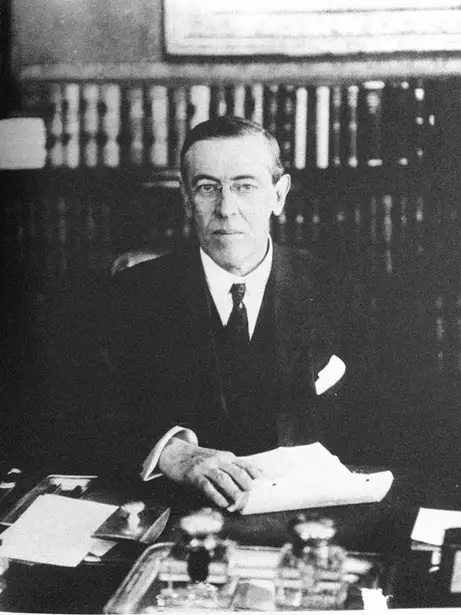
Source: Wikimedia Common
Woodrow Wilson was the 34th Governor and was appointed as the Governor of New Jersey from 1911 until 1913.
Before becoming the governor, he was the president of Princeton University from 1902 to 1910. And, in the election of the Governor held in 1910, he was able to win the position by defeating Republican candidate Vivian M. Lewis with over 650000 votes.
As a governor, he was able to break with the party bosses and win numerous progressive reforms. The mobilization of the developed and Southerners came to his betterment as he was able to win the presidential election with their votes.
He passed progressive legislation, which included bills to reduce bribery and corruption in government offices, compensation programs for the workers, and set utility rates by establishing the public utility commission.
During his time as Governor, his goods deeds led to him gaining fame and respect from the citizen of the U.S. He was and still is considered one of the greatest governors and presidents of the U.S.
8.He had a vital role in passing the Clayton Antitrust Act
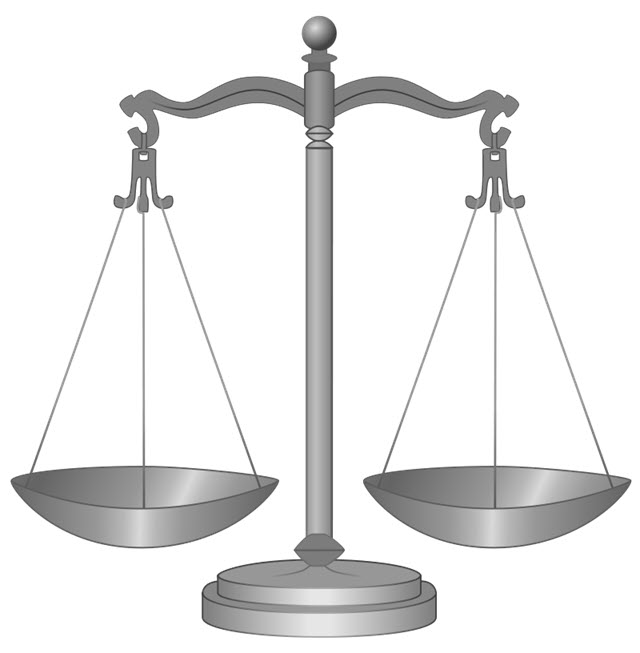
Source: Wikimedia Common
Woodrow Wilson signed the Clayton Antitrust Act on 15th October 1914. This law was made to ban the ill practice going on in the market and the country.
Wilson established the banning of anti-competitive mergers, price discrimination, declared strikes, and prohibited exclusive sales contracts with this act. It was enforced by the FTC, which also forbids some types of holding companies.
Wilson pushed the act in 1914, which later was signed into law. A few antitrust laws were enforced within the country, including the Sherman Antitrust Act, but none of those acts was as powerful as this one. It focused on dictated accountability of corporate officers and also clarified guidelines.
The five major principles of this act included a prohibition against particular exclusive and tying dealing practices, anticompetitive price discrimination, anti-competitive mergers, a labor exemption that permitted union organizing, and an expanded power of private parties to sue and obtain triple damages.
The act gave power to the government to protect consumers and competition by restricting unhealthy business practices.
7.Wilson was responsible for the establishment of the Federal Trade Commission
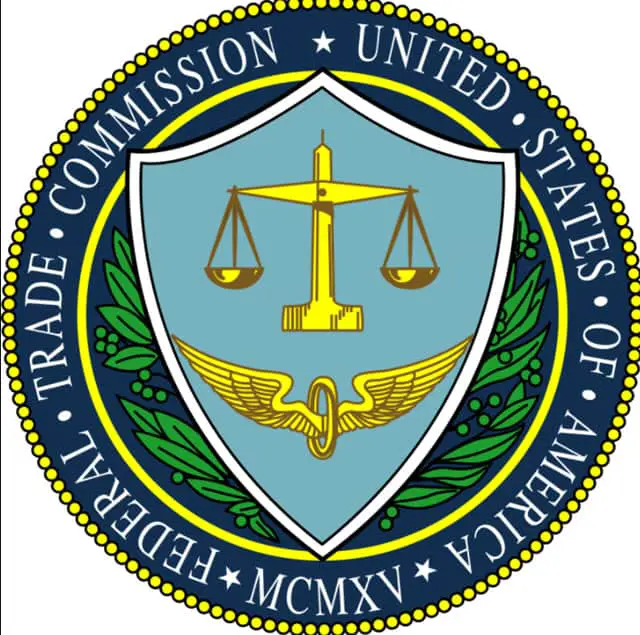
Source: Wikimedia Common
The Federal Trade Commission was established in 1914 under the Federal Trade Commission Act. Woodrow Wilson signed this act and the commission to maintain fair market methods.
This act and the commission boycotted the unfair acts that could affect the country’s commerce. Another reason for establishing this commission was to create a flow of legal goods that could replace the ongoing unfair, anti-competitive, and detective practices in the market.
The people involved in the commission also focused on providing a competitive market and also protecting the consumers. This act was somehow similar to the other activities of the Clayton Antitrust act. Woodrow Wilson would sign on those laws and proposals which would benefit the country’s commerce and economic status.
The commission had a five-membered board, and the act was applicable for everyone involved in the market, including banks.
6.He had a role in establishing the Federal reserve system
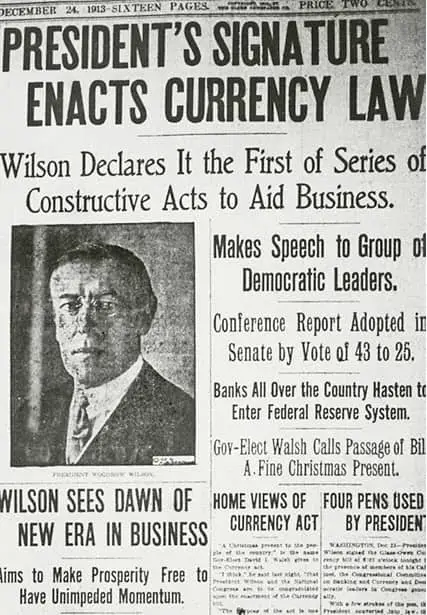
Source: Wikimedia Common
The Act was established in 1913 to maintain economic stability, and monetary policy supervision was given to the central bank. However, the act was signed by Wilson on 23rd December of the same year, and from the act, the Federal Reserve System was established.
President Wilson established the Federal reserve system act to manage the US currency system. Its other principal purpose was to internationalize the U.D Dollar all over the world as a global currency.
Also, he wished to move the full power of control on money from the wealthy and move to every citizen. He had said that the control of the banking system should not be private but be public.
The implementation of this act would indirectly maintain the rates of interests of the country and result in the smooth flow of money circulation. It was also known as the Fed and referred to as the Central bank as it could make the stable, flexible, and safer financial system.
5.Wilson took the number of Pro-Farmer Measures
Woodrow Wilson, as a president, did not only focus on the economic and commercial sectors but also on the development of the agricultural sector by supporting and benefited the farmers.
For that, a particular act for the farmers – the Smith-Lever Act was signed by President Wilson on the 8th of May 1914. Under this act, the farmers were to be helped to learn new agricultural techniques with the help of home instructions.
This act also helped establish a national cooperative extension service that helped run outreach programs through land-grant universities. They focused on educating rural Americans giving them knowledge regarding modern farming technologies and practices.
Another act, the Federal Farm Loan Act – 1916, was also signed to increase the credit to farmers with low interest. A special board, a federal farm loan board, and twelve regional farm loan banks, tens of farm loan associations were created to help and guide farmers in loan-related issues.
With all these acts and boards, the farmers could mobilize their efficiency and compete with bigger businesses.
4.He was responsible for giving rise to Wilsonianism
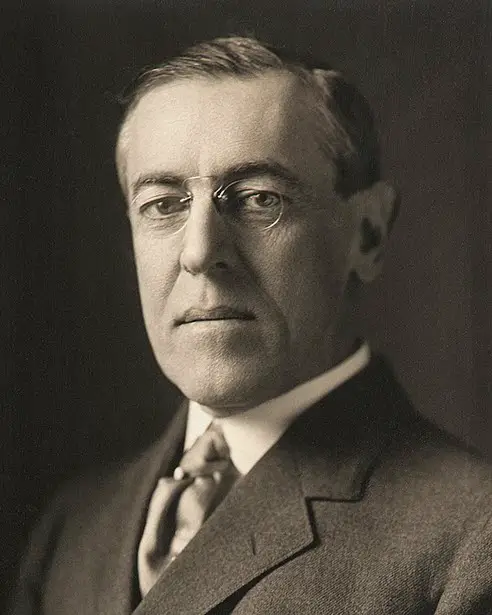
Source: Wikipedia Common
Woodrow Wilson was a progressive Democrat believing in the power of the federal government, which could expose corruption, smoothly mobilize the economy, improve the condition of society, and eliminate unethical business-related practices.
He put forward the famous 14 points in January 1918: Equal trade conditions, Adjusting of colonial claims, decrement of armaments, economically free trade on the sea both in peace and war and evacuation of all Central Powers from Russia.
However, the most significant four points include Open markets, Spread democracy, An active global role for the United States, and An international organization for maintaining peace.
These points and his ideology to maintain fair market flow and other things like farmer education and women’s right brought Wilsonalism. The trend of Wilsonalism continues during the presidency of Barrack Obama, Bill Clinton, and George Bush.
3.He implemented Nationwide Women’s Suffrage
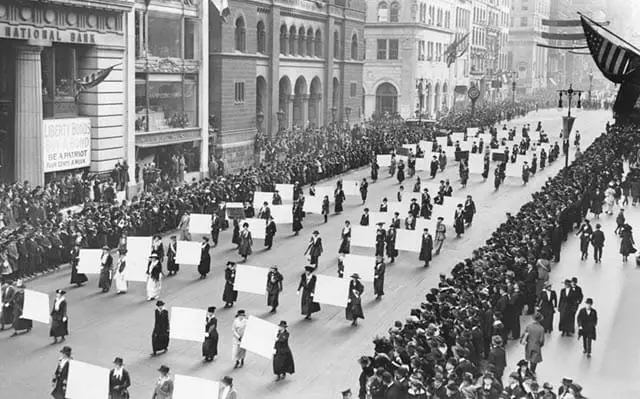
Source: Wikimedia Common
The Women’s Suffrage was a decades-long movement for the right to vote. The campaigning process was not easy as women had to deal with a lot of hurdles. However, in the 1918 speech of Wilson, he endorsed suffrage and signed the act in August 1920.
He was inclined to do so, as women had been a massive help during World War I. Though others were still not ready for this, Wilson enforced it, which led to the signing of the 19th Amendment.
The Nineteenth Amendment to the U.S constitution was signed in 1920. Under this Amendment, any U.S citizen will be able to cast a vote, and no one will be prohibited based on gender.
This fight was led by Elizabeth Cady Stanton – a mother from upstate New York which was followed by more than 200 people, including males and females.
2.He was responsible for the prevention of Economic disaster
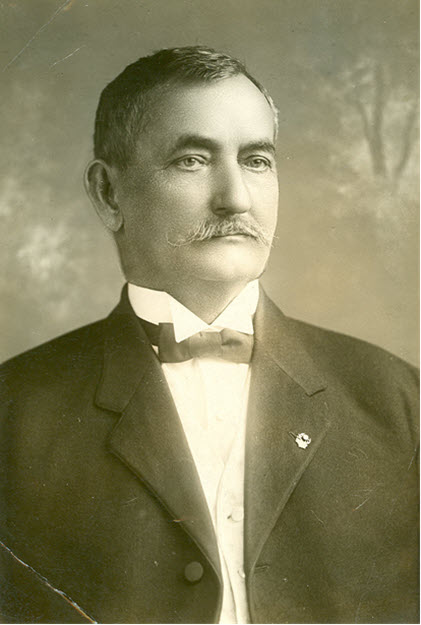
Source: Wikimedia Common
President Wilson was responsible for numerous acts that helped end the unfair market system, bring peace, give rights to all gender to vote, and educate farmers.
In addition to all these acts, another principal act that resulted in preventing major Economic disasters includes the Adamson Act. The Adamson Act was signed on the 2nd of September 1916 after the breakout of strikes done by the railroad workers leading to a threat to the U.S Economy.
Under this act, Wilson settled a maximum work hour per day – eight hours per day proposal. Also, interstate would be able to work overtime and get paid for the overtime done.
With this act and the settlement made by Wilson, the strike came to an end, and he was praised and respected for bringing a simple solution to control the economic disaster.
1.He was awarded the Noble Peace Prize

Source: Wikimedia Common
President Wilson, who always fought for fair market and world peace, was awarded the Nobel Peace Prize on 10th December 1920.
This award was mainly given for ending world war I and also creating the League of Nations. He is also known as the father of the League of Nations.
He emphasized that creating a league of Nations and maintain peace should not be two different objectives but instead be one. He mentioned this in his speech in December 1918, and the League of Nations was founded on the 10th of January 1920.
The WWI ended with the Paris peace conference, which had many people, including Wilson, as one of the primary persons responsible. The other members accountable for these peace talks include David Lloyd George, Vittorio Orlando, Georges Clemenceau, and Woodrow Wilson.
